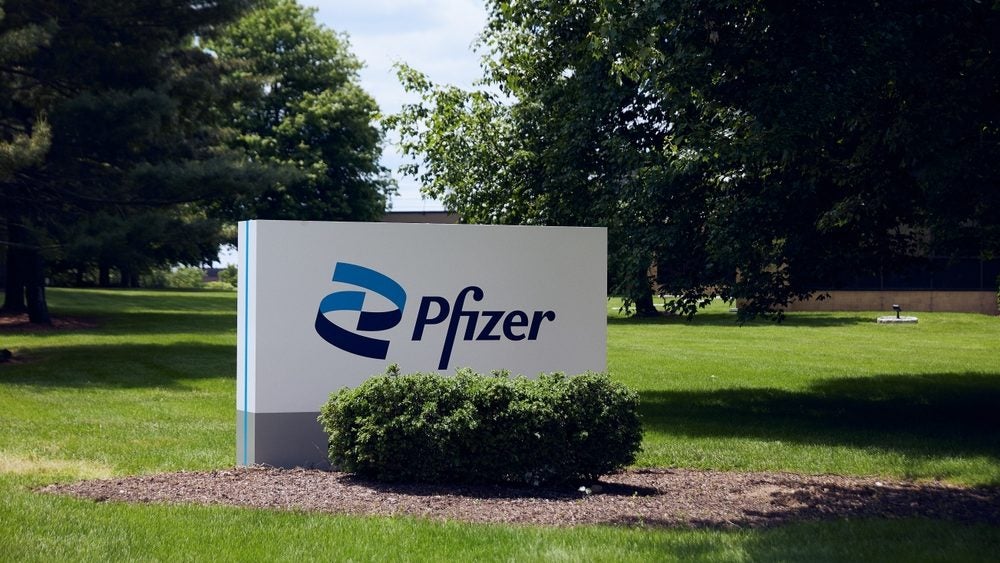Cobimetinib fumarate is under clinical development by F. Hoffmann-La Roche and currently in Phase II for Human Epidermal Growth Factor Receptor 2 Positive Breast Cancer (HER2+ Breast Cancer). According to GlobalData, Phase II drugs for Human Epidermal Growth Factor Receptor 2 Positive Breast Cancer (HER2+ Breast Cancer) have a 45% phase transition success rate (PTSR) indication benchmark for progressing into Phase III. GlobalData’s report assesses how Cobimetinib fumarate’s drug-specific PTSR and Likelihood of Approval (LoA) scores compare to the indication benchmarks. Buy the report here.
GlobalData tracks drug-specific phase transition and likelihood of approval scores, in addition to indication benchmarks based off 18 years of historical drug development data. Attributes of the drug, company and its clinical trials play a fundamental role in drug-specific PTSR and likelihood of approval.
Cobimetinib fumarate overview
Cobimetinib (GDC-0973 / RG7421 / Cotellic) acts as an anti neoplastic agent. It is formulated as film coated tablets and tablets for oral route of administration. Cotellic is indicated for the treatment of patients with unresectable or metastatic melanoma with a BRAF V600E or V600K mutation, in combination with vemurafenib.
The drug candidate is under development for the treatment of extracranial arteriovenous malformations (AVM), atypical teratoid rhabdoid tumor, hairy cell leukemia, chronic myelomonocytic leukemia, non-small cell lung cancer (first and third-line therapy), histiocytic disorders such as Langerhans cell histiocytosis and other histiocytic disorders such as juvenile xanthogranuloma (JXG), Erdheim-Chester disease (ECD) and Rosai-Dorfman Disease (RDD)), craniopharyngioma, glioma, high-grade glioma, low-grade glioma, epithelial ovarian, fallopian tube, and primary peritoneal cancer, pediatric diffuse intrinsic pontine glioma, stages I-III non-small cell lung cancer with ALK, ROS1, NTRK, or BRAF v600E molecular alterations, pancreatic ductal adenocarcinoma, rhabdomyosarcoma, non-rhabdomyosarcoma, brenner tumor, soft tissue sarcomas Neuroblastoma Melanoma Malignant peripheral nerve sheath tumor Rhabdoid tumors, including atypical teratoid/rhabdoid tumor (ATRT) NF1-associated tumor (including plexiform neurofibroma), schwannoma, renal cell carcinoma, head and neck squamous cell carcinoma, urothelial carcinoma, relapsed and refractory acute myeloid leukemia, metastatic inflammatory breast cancer, HER-2 positive breast cancer and relapsed and refractory multiple myeloma. It was also under development for BRAF mutated metastatic melanoma (first line of therapy), endometrial cancer, metastatic colorectal cancer and metastatic triple negative breast cancer (first line of therapy). It is administered through oral route.
F. Hoffmann-La Roche overview
F. Hoffmann-La Roche (Roche) is a biotechnology company that develops drugs and diagnostics to treat major diseases. It provides medicines for the treatment of cancer, other auto-immune diseases, central nervous system disorders, ophthalmological disorders, infectious diseases, and respiratory diseases. The company also offers in vitro diagnostics, tissue-based cancer diagnostics, and diabetes management solutions. Roche conducts research to identify novel methods to prevent, diagnose, and treat diseases. The company offers its products and services to hospitals, healthcare professionals, commercial laboratories, researchers, and pharmacists. Together with its subsidiaries and partners, the company has operations in various countries. Roche is headquartered in Basel, Switzerland.
For a complete picture of Cobimetinib fumarate’s drug-specific PTSR and LoA scores, buy the report here.
Premium Insights
From

The gold standard of business intelligence.
Blending expert knowledge with cutting-edge technology, GlobalData’s unrivalled proprietary data will enable you to decode what’s happening in your market. You can make better informed decisions and gain a future-proof advantage over your competitors.




